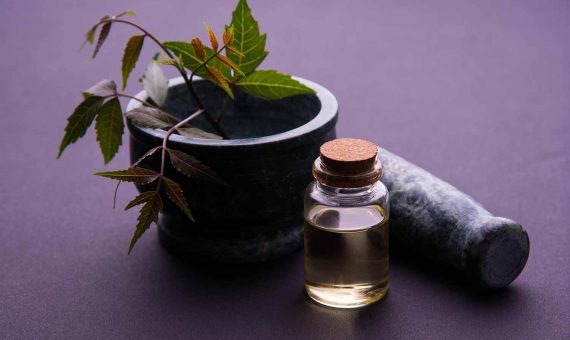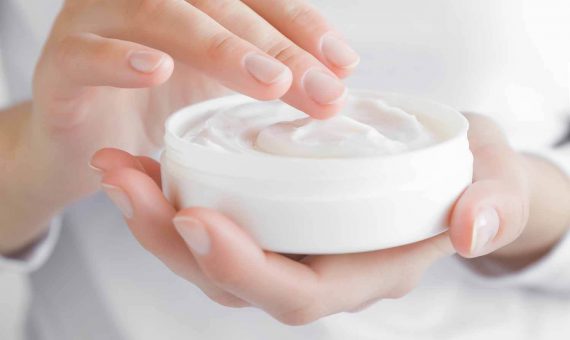Currently Empty: $0.00
Can You Take CBD and Turmeric Together?
Turmeric and CBD are both known to have effective health benefits. And the benefits of both are similar in that they aid digestion, inflammation, and more. But with natural supplements like these, the interactions between the two are a bit of a gray area. It can be difficult to determine which claims are proven, causing some confusion among consumers. Is it safe and beneficial to take CBD and turmeric together?
You can take CBD and turmeric together. In fact, several supplements are containing both CBD and turmeric on the market. Both compounds have been shown to have potential beneficial effects in people with similar conditions but require more testing and experimentation before these effects can be confirmed.
If you’re interested in the health benefits of taking CBD and turmeric, but you’re unsure as to whether or not you can take them together, keep reading. Here you’ll find out if you can take CBD and turmeric together, as well as the benefits of doing so.
3 Benefits of Turmeric (Ingestion)
Turmeric, that’s ingested as a supplement or used as a spice, comes from a root that’s similar to ginger. It’s a centuries-old anecdote to all kinds of ailments. Next up, some of the known benefits of turmeric.
1. Compounds Found in Turmeric have Anti-Inflammatory Properties
Inflammation is the body’s natural method of fighting to heal and repair itself. Ideally, it’s a process that lasts a few days to a week, but it can last much longer than that when the problem doesn’t go away.
When inflammation lasts longer than a few days, it’s called chronic inflammation. This usually happens when the problem that caused the inflammation is untreated or ongoing. Causes include obesity, autoimmune diseases, and even air pollution.
Long term chronic inflammation is linked to several diseases, most notably heart disease. However, if you do suffer from chronic inflammation, turmeric is thought by some scientists to have anti-inflammatory properties.
According to the University of Utah, research into the anti-inflammatory properties of turmeric shows some promise. If these properties do turn out to exist, researchers hope that curcumin may play some role in treating diseases like arthritis and some complications of diabetes.
In other words, though turmeric’s anti-inflammatory properties are not yet fully understood, they are widely believed to exist in some capacity. And turmeric used topically can have anti-inflammatory benefits for your skin as well.
2. Turmeric Contains Antioxidants
Not only does turmeric have anti-inflammatory properties, but it also is considered an antioxidant. Antioxidants are thought by some people to reduce your risk of several diseases, such as heart attacks and cancer. This is because antioxidants may play a role in removing free radicals from your system.
Free radicals are extremely reactive compounds that can cause cell damage when present in your body. They are both produced naturally by cells converting food to energy and introduced externally by airborne pollutants.
When you have too many free radicals in your body, it causes long term stress that can cause damage.
The role that antioxidants play in our bodies is still somewhat controversial, let alone whether or not turmeric is the best way to consume them. That being said, the research that has been done so far is quite promising, and more is sure to follow.
3. Turmeric Can Help Slow the Aging of Your Brain
Finally, some studies have shown turmeric to stimulate the production of brain-derived neurotrophic factor (BDNF). BDNF is thought to promote a healthy brain, but researchers often observe low levels of BDNF in people with diseases of the brain like Alzheimer’s.
If turmeric does help your body create BDNF, and BDNF turns out to be as effective at maintaining your brain as some researchers believe, it could play a vital role in keeping you healthy.
In addition to helping stave off brain disease, some scientists even think that turmeric supplements might be able to promote the better functioning of a healthy brain! It is worth noting that nobody is sure of this yet, and further studies are needed to confirm.
(Check out how much turmeric you can take each day in that article.)
3 Benefits of CBD (Ingestion)
CBD has only been legal for a couple of years, although its health benefits have been known for quite some time. Now that CBD is approved by the FDA and legal, it’s used even more as a natural treatment option. Let’s investigate some of the ways you can benefit from using CBD.
1. CBD Can Treat Pain
Pain is historically one of the most difficult conditions for a doctor to treat. It has no objective measure, relying on the patient to self-report. It also has countless different causes and treatments. In this context, researchers have been studying CBD’s properties as a painkiller and have seen the potential.
According to Healthline, studies have shown CBD oil to treat pain ranging from acute causes, such as cuts and scrapes, to chronic causes like arthritis and MS. Should these studies turn out to be accurate, CBD could become a painkiller with incredibly varied uses.
Pain is a fundamentally subjective experience, and CBD may or may not end up being a good treatment for it. However, the research so far is promising, and giving doctors another tool in their arsenal to combat their patients’ pain may very well turn out to be a game-changer for many conditions.
2. CBD May Help Treat Common Mental Illnesses
CBD has shown some potential as a treatment for common mental illnesses, especially depression and anxiety. It’s believed that CBD affects the serotonin receptors in your brain, allowing them to respond more strongly to it.
This would be encouraging if true, as both depression and anxiety have been linked to low levels of serotonin. CBD is also seen as having the potential to help insomnia, something many people with depression and anxiety struggle with.
It is important to note that CBD is not considered a replacement for antidepressants. Its effects on mental health are still rather poorly understood, and even though it shows strong potential, you should always follow your doctor’s advice.
3. CBD Can Also Reduce Inflammation
Much like turmeric, CBD has been shown in some studies to reduce inflammation. According to Medicalnewstoday, CBD has been shown to reduce joint pain in rats. Though human trials are needed before anybody can claim definitively that CBD reduces inflammation, these studies are extremely promising.
Chronic inflammation is often associated with other symptoms CBD has shown potential in treating, including chronic pain and mental illness. If these benefits are eventually proven, CBD could prove an all-inclusive treatment for many of those conditions.
The Main Benefit of Taking CBD and Turmeric Together
So, we’ve shown that both turmeric and CBD have shown potential for positive health effects individually, but what are the advantages of taking them together. Well, to start, there isn’t much evidence that these two supplements have synergistic effects. In other words, they don’t interact with each other in a way that makes either of their effects stronger than it would be on its own.
Though the effects of these supplements still require more research, there is evidence that they have some of the properties claimed by those who support their use.
We have a great write up of these effects coming up, but first, some quick things to know about using supplements containing CBD and Turmeric:
- Turmeric supplements often don’t contain turmeric, but an extract of the compound in turmeric thought to be responsible for some of its benefits called curcumin. This is because the body does a poor job of absorbing turmeric, passing most of it as waste. So, while it is considered healthy to eat turmeric in food, you would have to use quite a bit in your cooking to absorb enough curcumin to see effects.
- Though CBD is derived from the marijuana plant, it does not cause a high. This is because it doesn’t contain THC, which is the plant’s part thought to cause that high. That being said, the fact that CBD is derived from a plant considered illegal in much of the United States and federally has contributed to its murky legal status. Though it is legal in many more areas than THC and cannabis, it’s worth looking into your local laws to make sure you’re in the clear.
With all that out of the way, let’s take a look at some of the effects these supplements have shown promise in! Please note that many of these health claims are not confirmed.
Keep in mind that this does not mean that there is no evidence supporting them, just that most medical professionals would like to understand the mechanisms behind them before considering these claimed medicinal properties a medical fact.
Always check with a medical professional before starting a supplement. Though the side effects are generally considered mild, there are some potential interactions with other medications and conditions your doctor will be aware of.
Also, they may be privy to cutting-edge research not yet widely available to the public!
However, they have been shown to treat similar health problems. They both show potential as anti-inflammatories, and both contain antioxidants. More importantly, the separate issues they treat often happen together.
Take psoriasis, for example. Psoriasis is an autoimmune disease that causes inflammation on the skin, resulting in scaly patches. It is also thought to cause inflammation inside the body and can lead to arthritis as well. It’s a great example of a disease that has wide-ranging symptoms.
Psoriasis is an inflammatory disease, but people who suffer from it also suffer from mental illness due to its disfiguring nature. Additionally, it can also be painful, especially if it has caused arthritis. Turmeric and CBD together have shown potential in helping to mitigate all three of these aspects of the disease.
To be clear, Turmeric and CBD have shown the potential for mitigating these symptoms. There is still a lot of research that needs to be done on both compounds. Psoriasis is simply a good example of the kind of symptoms that Turmeric and CBD may be able to treat. Always follow the advice of your doctor.
Final Thoughts
Turmeric and CBD are both supplements that have shown evidence of helping with a multitude of different ailments. Though there needs to be considerably more research done on both to confirm their effectiveness, they may be worth a try if you suffer from anxiety, depression, inflammation, or chronic pain.
As long as your dosage is moderate, both compounds have fairly moderate side effects. Turmeric supplements have been known to cause an upset stomach, as well as diarrhea and dizziness. CBD can also cause diarrhea, as well as fatigue.
Always, always, always check with your doctor before starting any new supplement, especially if you have any health conditions or are already taking medication. CBD, especially is known to have potentially dangerous interactions with several common medications.
Overall, science is an evolving discipline, and several years of being unsure about something usually precedes the level of certainty medicine demands. The side effects of these supplements are usually mild, and their potential benefits are impressive.
Hopefully, these compounds’ benefits will be confirmed soon, but until then, communicate with a trusted healthcare professional, and use your best judgment!





